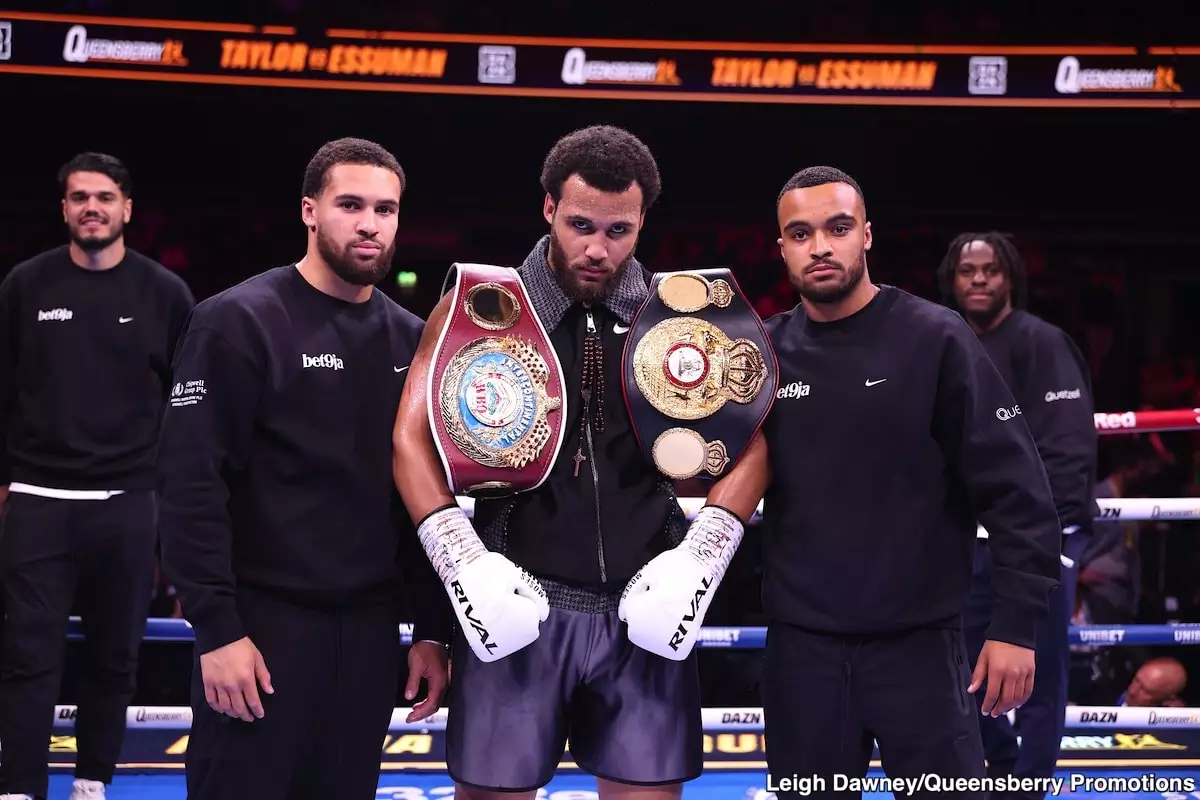Moses Itauma’s rapid ascension to the #1 spot in the WBO heavyweight rankings has stirred a significant amount of debate and skepticism among boxing enthusiasts. His most recent victory, a second-round knockout against veteran Mike Balogun, was certainly impressive on the surface. However, a deeper dive into Itauma’s record reveals a pattern that raises eyebrows about the integrity of such a promotion within a highly competitive field. Currently boasting a record of 12 wins—10 by knockout—it’s essential to scrutinize not only the circumstances surrounding his ranking but also the quality of opponents he has faced throughout his brief and tumultuous career.
The joy of victory is easily dampened by the reality of Itauma’s competition. At just 20 years old, he may represent a burgeoning talent in heavyweight boxing, but his claim to the top-ranking title is marred by the experience level of his opponents. Mike Balogun, at 36 with a record of 21-2, lacked any significant accolades to warrant the attention that has catapulted Itauma to the pinnacle of WBO rankings. The fact that boxing fans have expressed discontent underscores the broader concern about how quickly young fighters are elevated without the proper vetting of their capabilities. Critics point out that Itauma’s best wins were not against formidable contenders but rather individuals pulled from lower tiers of the sport, raising questions about his readiness to take on the elite.
A Flawed Evaluation: The Rankings Conundrum
The WBO’s decision to promote Itauma so rapidly seems disconnected from the fundamental ethos of competitive sports, which is to reward merit based on genuine challenge and accomplishment. Critics argue that a more logical approach would have been to filter his early career through a series of tests, including opponents like Agit Kabayel or Martin Bakole, before elevating him above respectable fighters. This pattern of inflation, where young boxers find themselves highly rated despite insufficient experience, can produce an illusion of supremacy. It brings into question not just the boxer himself, but also the governing bodies that allow such rankings to take place without substantial evidence of a fighter’s readiness.
Given the volatile nature of boxing, an inflated record may create a false narrative about a fighter’s abilities. For instance, Itauma’s prior victories against opponents who are either past their prime or have recently faced setbacks lead to a hazy understanding of his actual skill level. The critique of his best victories is warranted and illustrates the difficulties surrounding the evaluation of aspiring boxers who breeze through unchallenging contests.
The Burden of Expectation: Can Itauma Meet the Moment?
Upon achieving his elevated ranking, the expectations for Itauma will undoubtedly shift. He himself has displayed an eagerness to step up competition, indicating that he is aware of the pitfalls of rushing into the spotlight without sufficient preparedness. Statements regarding his ambitions to fight in America and tackle more reputable names in the heavyweight division suggest an understanding of the nuances of growth and competition. Yet, there lies a duality in this approach; should the WBO continue to back such rapid promotions, what will happen when the bubble inevitably bursts?
Entering high-stakes matchups without the requisite experience can place tremendous pressure on athletes, particularly when they are thrust into a world where elite contenders have faced devastating challenges and come out resilient. Itauma’s bravado, showcased in post-fight statements, can be interpreted as overconfidence, which might lead to disastrous results when matched against seasoned adversaries. Fans and analysts alike will be keen to observe if he can back up his lofty aspirations with actual performance when the stakes are heightened.
Ultimately, Moses Itauma embodies the complexities of modern boxing—a young talent with the potential for greatness shadowed by the realities of inflated environments. As he stands on the cusp of either succeeding or faltering, the sport must grapple with the implications of his ascent. In an era where meritocracy seems increasingly elusive, Itauma’s story serves as both a lesson and a reminder to the boxing community about the value of genuine competition over surface-level accolades.

